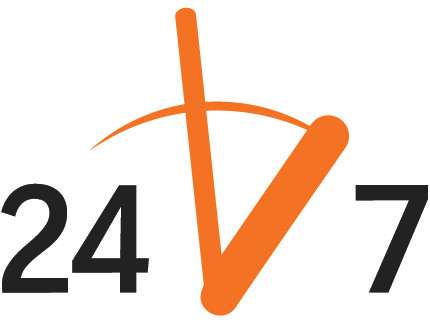People Change Online Behavior To Hide From NSA Snoops


It's not a majority of us us by any means, and it's certainly not enough, but a good many people and businesses are changing their online behavior in response to revelations about National Security Agency snooping. Some people are becoming more selective about what they post on social media sites (never a bad idea) — especially those that have been listed among the firms that readily surrender data to the NSA. Others are switching to providers based outside the US (and presumably less subject to American government pressure) adopting encryption technology, or using services that just don't store data.
From the Boston Globe/AP:
Christopher Shoup, a college student from Victorville, Calif., has been encouraging friends to converse on Cryptocat, a private messaging program that promises users they can chat ''without revealing messages to a third party.'' Shoup isn't worried that his own behavior could draw scrutiny, but said the mere idea that the government could retrieve his personal communications ''bothers me as an American.''
''I don't think I should have to worry,'' he said.
Cryptocat said it nearly doubled its number of users in two days after Snowden revealed himself as the source of leaks about the NSA's programs. Two search engine companies billed as alternatives to Google, Bing and Yahoo are also reporting significant surges in use.
DuckDuckGo and Ixquick both promise they don't collect data from users or filter results based on previous history. DuckDuckGo went from 1.8 million searches per day to more than 3 million per day the week after the NSA revelations came to light. Ixquick and sister site Startpage have gone from 2.8 million searches per day to more than 4 million.
Gabriel Weinberg, chief executive of DuckDuckGo, said the NSA programs reminded people to consider privacy but that government snooping may the least of an everyday computer user's concerns. DuckDuckGo's website warns of the pitfalls of Internet search engines, including third-party advertisements built around a user's searches or the potential for a hacker or rogue employee to gain access to personal information.
The article quotes an attorney opening a new tax planning firm. He's using a Canadian email provider and avoiding hosting sensitive documents in the cloud.
Ixquick, a smaller Dutch search engine known for not recording users' data, is unveiling encrypted email that even the company can't access.
Acknowledging that not everybody is up on the technical details of minimizing their exposure online, some savvy people are hosting cryptoparties "to show people how to operate online more privately."
Is it a revolution in the way people use the Internet? That's doubtful. But it is a move toward greater awareness of privacy risks — a move that seems to be spurring the development and distribution of privacy protecting policies, products and services that may help to create a new normal online.
Follow this story and more at Reason 24/7.
Spice up your blog or Website with Reason 24/7 news and Reason articles. You can get the widgets here. If you have a story that would be of interest to Reason's readers please let us know by emailing the 24/7 crew at 24_7@reason.com, or tweet us stories at @reason247.
Editor's Note: As of February 29, 2024, commenting privileges on reason.com posts are limited to Reason Plus subscribers. Past commenters are grandfathered in for a temporary period. Subscribe here to preserve your ability to comment. Your Reason Plus subscription also gives you an ad-free version of reason.com, along with full access to the digital edition and archives of Reason magazine. We request that comments be civil and on-topic. We do not moderate or assume any responsibility for comments, which are owned by the readers who post them. Comments do not represent the views of reason.com or Reason Foundation. We reserve the right to delete any comment and ban commenters for any reason at any time. Comments may only be edited within 5 minutes of posting. Report abuses.
Please to post comments


I think it is a two-way street: while it is impossible for the government to totally censor information sharing on the internet (you can't stop the signal Mal), it is likewise very difficult to use the internet without being observed by a third party that wants to observe you.
Yeah, but there's no way to process the sheer amount of data. At least not in its entirety.
Wanna bet?
And then a guy kills you with a sword. How weird is that?
very difficult to use the internet without being observed by a third party that wants to observe you.
Any party, sure. Your end point always knows.
But 3rd parties? Not so sure it's all that difficult. Noscript, ghostery, no 3rd party cookies, delete flash cookies, and HTTPS everywhere ought to thwart the bulk of them.
He is concerned that students end up paying too many funds for college student, thus end up placing heavy on the child's family.
Check this links:
http://www.theguardian.com/edu.....off-ofqual
http://www.buyessayshere.com
Just as long as they aren't routing through Britain...
I don't know why anyone would store files in "the cloud."
I use google drive to make random stuff I need at multiple locations easier to access. Mostly just crap I want to sell on Craigslist though.
It's nice for things you need to share with multiple people. Otherwise you send copies all around, person A changes line 5 and person B changes line 20, but neither knows about the other's changes. Also, I keep my grocery list on the cloud now so I can access it from my phone when I'm at the store and have inevitably forgotten to bring my hand written list.
I think I might try writing in a simple code, like this...
Vwxlyaw dyxj tiy, rglr'a qtg.
Looks like bad Klingon.
Which is indistinguishable from good Klingon.
The only good Klingon is Warf.
It's important to note that Cryptocat has programming flaws that may expose the users' messages in ways they do not intend.
http://nakedsecurity.sophos.co.....uggy-prng/
Why would switching to a Canadian email provider offer any protection? If anything, it ensures that your data is crossing the border which completely obliterates any 4th amendment protections you could have hoped to have.
I think the protections are just gone.
1. Online, even with purely domestic communications, there's no guarantee the info won't cross the border and back. Information follows the cheapest path, not the most direct.
2. Foreign communications companies are not under the control of the US courts, as such they can't be compelled *by the US* to turn over data. Of course he US can plead or threaten *that* government to try to get the info turned over but its harder and those companies are not bound by FISA gag orders.
A planet where people change their behavior in the face of (negative) incentives?
If you're worried about privacy switching from Google to Microsoft or Yahoo is a really stupid idea.